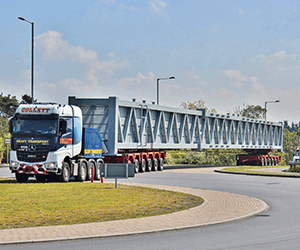The firm revealed that revenue was expected to fall this year as it took a more selective approach to securing work with clients in a tougher market that is proving more commercial and contractual.
The 151-year-old family-owned firm, which operates across central and southern England, slipped into a trading loss of £360,000 despite raising revenue 12% to £164m.
After interest, Stepnell managed to just break even with a £50,000 pre-tax profit.
Tom Wakeford, joint managing director of Stepnell, said the firm had appointed a new commercial director, John Green from Bouygues, to spearhead its new commercial strategy of being selective about the projects it bids.
He added: “A few projects had their challenges, particularly through terms and conditions that proved to be more onerous than expected and subcontractors going out of business.
“We remain cautiously optimistic that our revised business model, with a focus on lower-risk terms and conditions, will hold us in good stead.
“Stepnell has a more diversified range of projects than ever before and this will position us to withstand market risks.”
He added: “Strategically, Stepnell is using 2019/20 as a year of consolidation and looking at our customer base very carefully.
“We will continue to refine project selectivity this year, being cautious and signing up to the right commercial terms.”
Stepnell holds positions on several successful framework projects for National Grid (Civil Engineering), Oxford Brookes University, Reading University, Crown Construction and Procure Partnerships and Dorset County Council.
Stepnell’s parent company, Stepnell Holdings, also reported a steady 7% rise in turnover for the financial year ending 2018/19 to £168m. But pre-tax profit dived from £10.7m to £1m.
The balance sheets on both Stepnell Limited and Stepnell Holdings remain healthy despite a challenging year, with assets of £20m and £49m respectively.
Wakeford said: “Our underlying performance is improving.
“We have a strong order book going forward and an increased the level of due diligence that we apply to each project that we consider, to enable us to make more robust decisions when choosing whether to bid for or decline individual opportunities.
“This has led to our current projects having had a greater level of scrutiny during the bid stage and before they are signed into contract and therefore more successful now that they are on site.”

 (590 × 200px) - Dec 24.gif)






.gif)
















































